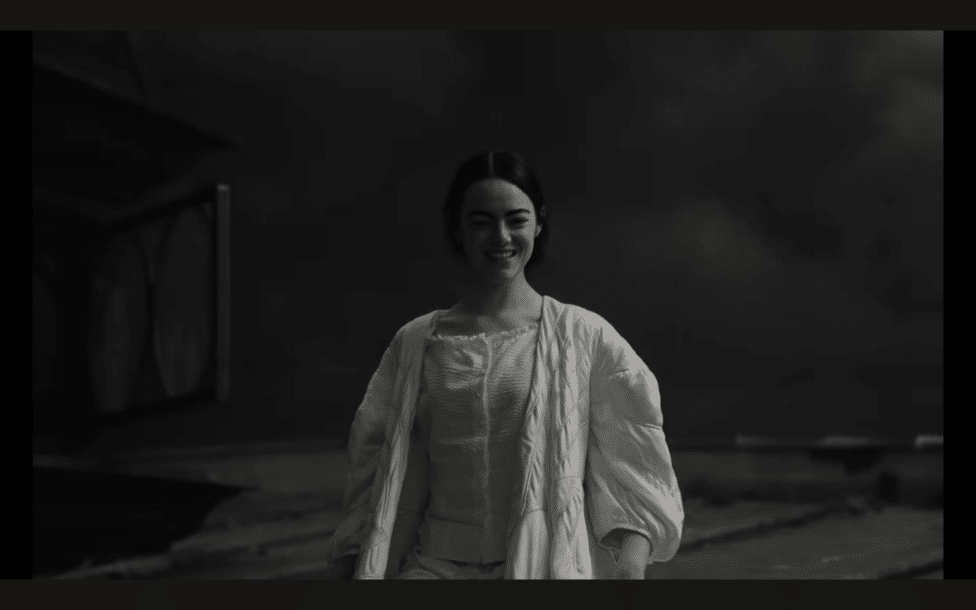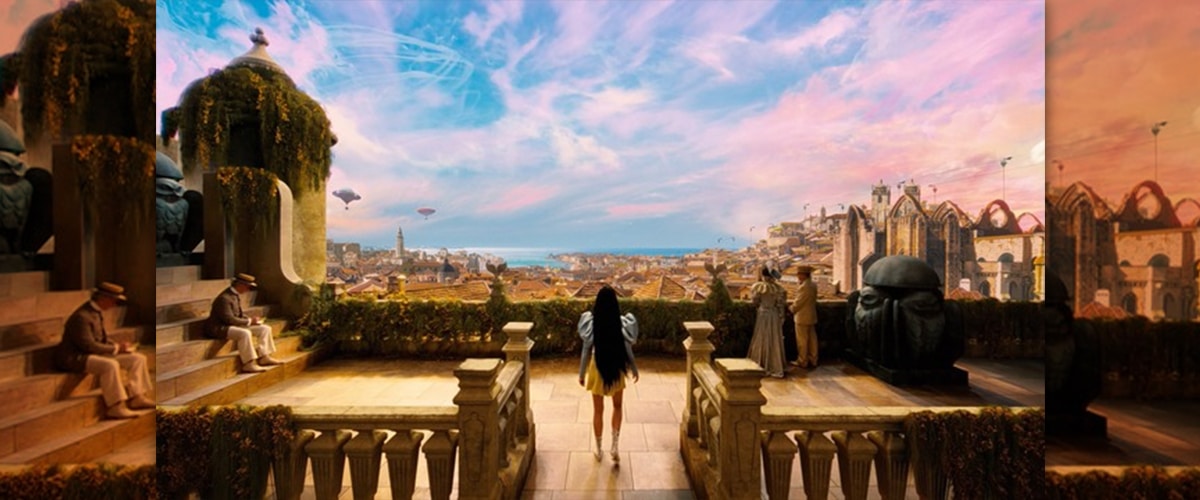Warning: This review contains spoilers.
“We must work, we must make money. But more than that Bella, we must experience everything; not just the good, but degradation, horror, sadness. This makes us whole Bella – makes us people of substance – not flighty, untouched children. Then we can know the world. And when we know the world, the world is ours.”
Yorgos Lanthimos’ film, “Poor Things,” revolves around the life of a woman named Bella Baxter. Loosely based on the 1992 novel of the same name written by Alasdair Gray, the story follows Bella as she is brought back to life by scientist Godwin Baxter.
Though she looks like a woman, Bella acts like a child throughout the film, as if re-learning how to become human once more. Everything is new to her: the food she eats, the places she goes to, the sensations she feels.
Through Godwin, she has been given a second chance in life and quickly grows bored of the confines of the scientist’s home. She decides to venture out into the world with Duncan Wedderburn as her companion.
Soon enough, Bella realizes that life is not as simple as it was at home. She learns of the ills of the world: greed, lust, hunger, corruption.
But as she continues to gain more knowledge, she finds herself more enlightened – more aware of what she hopes to do with her life, deciding so not with the help of the men around her, but with her own mind, shaped by experiences only she has gone through. Experiences only she will know, only she will understand.
With a star-studded cast and a renowned director leading the whole process, success was expected of “Poor Things.”
What was probably unexpected was just how much actress Emma Stone was able to bring Bella’s character to life. She is innocent, but at the same time, lustful. Kind but cruel if the situation were to demand it. Her behaviors were constantly a paradox of one another, just like humans are. Just like being human is.
It is no surprise that the film received the number of awards and nominations that it did in the likes of the Academy Awards, the BAFTAs, the Critics’ Choice Awards, and more. What was surprising, however, was the amount of backlash that the film received for its message.
Surprising, but in my opinion, not unwarranted.

Thoughts on the film
I am honestly unfamiliar with most of Lanthimos’ work. Of his filmography, I’ve only ever seen “The Lobster,” and upon watching “Poor Things,” I found there the cynical, dry humor of the former.
While the film has some in-your-face humor, there are many situations where these hilarious lines are delivered in a deadpan manner by characters which, to me, makes them more hilarious. This restricted manner, I feel, manners the world in which Bella lives in: one where we are expected to act a certain way at all times.
If there were scenes in which characters show their hearts on their sleeve, often it is done in private.
From what I remember, it is only Bella who does not care what she does, nor where she does it. Duncan does the same in some instances, but this is only when he starts spiraling into madness.
Bella, on the other hand, is like this from start to finish. She stands at a tourist attraction in Lisbon and vomits for all to see, and collapses at the stairs of Alexandria, sobbing as she watches the poor suffering below her while only the other day, she was stuffing her face with so much food.
That is the beauty, I think, of Lanthimos’ film: it allows Bella to feel all her emotions, no matter if they may be uncomfortable or uncommon to us. In films, or rather in films where the protagonists are female, they only ever experience their emotions to the extent that they are still appealing to the audience.
If a woman were to cry in a film, she would do so while smoking a cigarette and scantily clad in lingerie. One could argue that this is done as a means of further showing her disheveled state. Others could argue that this is so that the men have something else to look at when she isn’t smiling prettily.
I could go on and on about the acting chops of all the characters involved, or of beauty of Lanthimos’ cinematography, but I do not think there is anything in those areas that has not yet been said. Instead, I will focus on the one thing I did not like about this film: its story.

Feminism in film (from the eyes of a man)
Upon finishing the film, I almost immediately opened Letterboxd to review it, because, of course, I have Letterboxd.
I was unsure, though, of how to put my feelings into words. I loved Stone’s acting, as well as how beautiful the film was, but there was something about it that made me feel uncomfortable.
Down the line of Bella’s journey, she ends up in France, working as a prostitute to make ends meet. One day, Duncan visits her at her job, judging her for what she has chosen to do. As she walks away, she tells him, “We are our own means of production.”
I am all for sexual liberation. I have been a supporter of sex workers and sex work since day one, but something about this line did not sit right with me.
Perhaps it’s because I live in a third-world country where prostitution is so rampant that we’ve become notorious for our “red light district,” which many tourists frequent.
This is not to say that all Filipinas who do sex work do so because they have no other choice. In fact, during the time that the United States had colonized the Philippines, Filipinas used sex to their advantage quite similarly to how Bella did.
They understood that the men were there to see and be with beautiful women, so they played the part. The way they would act, the way they would do their makeup and wear their clothes, all of this would be done most strategically – in the way that they knew would best get the boys lining up for them.
This was what made me so uncomfortable: this film made it feel as if this profession was something that you could just drop whenever it no longer suited your path in life. While many choose to go into sex work, there are not many who can freely decide to just leave it the way Bella does.
By the end of the film, she returns to her privileged life with her creator and suddenly her time as a sex worker becomes nothing more than just a phase.

Final thoughts
I understand that sex is not the only thing this film is about and that focusing too much on this aspect of it may take away from the whole point of the story completely because a woman can be so much more than just this one part of her life.
“Poor Things” is a film about life: hating it, loving it, but just experiencing it. We feel everything that Bella feels, and we feel it all deeply.
While not many of us may have had to live as prostitutes in France or have been whisked away on a boat by some madman just to keep us from exploring, we still understand the things she’s going through because we are as human as she is. Perhaps more.
But to simply dismiss one of the central themes of the film, I feel, would not just be unfair, but ignorant. To take only the good parts – or only the ones that I liked – and to dismiss everything else completely, to me, is the opposite of what films are about.
As I logged my Letterboxd review, I found myself asking a fundamental question: “What do you do when you love everything about a film except for its story… except for the very core of its being?”
In that same review, I answered myself: I do not know.
I would still recommend it if someone were to ask me if it is worth seeing. If it is worth believing in, however, that I am not entirely sure of.









